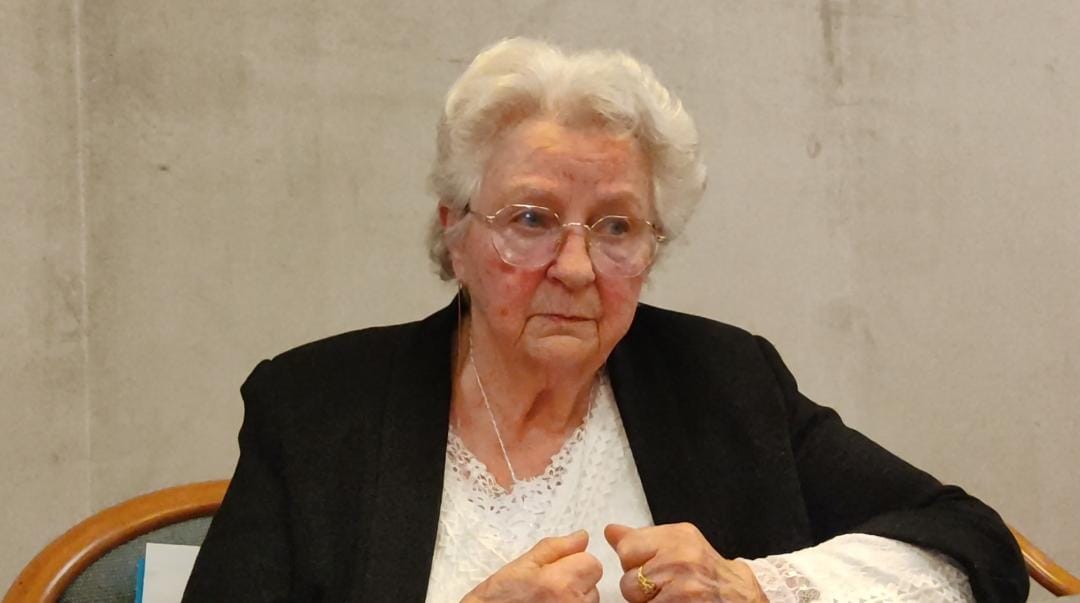
Workshop
The secret of fraternity is within the encounter

On the occasion of the presentation of the sixth edition of the Prize named after our brother priest, we met Roselyne Hamel who narrated to us traces of this story that confirm, as she says, that the secret of fraternity is within the encounter. Two mothers that have a common suffering, different but equally painful. The urge to go beyond specific reasons to say that fraternity is still possible.
Saint-Étienne-du-Rouvray, north of France. We are inside a church, on a sunny summer morning. Father Jacques is celebrating mass, as he presumably does every morning. He is almost 86 years old, his face marked by fatigue and the wrinkled hands of one who has held, for years, other hands to console and rosaries to pray. His eyes, however, are lively, large, and sensitive, conveying a vitality and a certain humor that the elderly French priest usually expresses. It’s hot on that 26th of July. On one hand, the world is following the International Youth Day in Kraków as a sign of fraternity and communion, but on the other hand is shaken by the different terrorist attacks, the last of which happened in France, at Nice, on the 14th of July, when a man deliberately ran over the crowd attending public celebrations for the French national holiday on the Promenade des Anglais.
Maybe, Father Jacques Hamel is also praying for this difficult moment in the world during the celebration, when two men barge into the church and force the priest to interrupt the liturgy and to kneel. They slit his throat, Father Jacques is immediately a martyr, so much so that Pope Francis, since that October since his death, decides to open a beatification cause for him.
The pain is still strong in Roselyne’s eyes, while she remembers those facts. Nearly 8 years have passed, and yet the cruelty of the execution of her brother, who was defenseless and fragile, makes the wound even more difficult to heal. In searching for a way out of that profound pain, Roselyne Hamel asks herself who must suffer more than her. And the answer reaches her after a long contemplation: Perhaps she is the mother of the assassin? Which tunnel can a mother, who knows that her own son has sown death, cross? Maybe that pain can be shared? Could it lead to something good? Roselyne thinks of her brother who, without making noise, dedicated himself to doing good to others, constructing bridges of dialogue and encounter. Even Roselyne is a mother and decides to take action and search for that mother, the mother of Adel Kermiche’s who at the time of the facts is no older than 18 years and who also died on the same day, while trying to flee from the church.
“I have been waiting for you for a long time” the lady replies, and like this, a process of reconciliation, of reciprocal healing, of forgiveness begins. Two mothers, one Catholic and the other Muslim, both marked by deep suffering, take action to once again find hope to offer the world.
In Rome, on occasion of the presentation of the sixth edition of the award named after our brother priest, we met Roselyne Hamel who narrated to us traces of this story that confirm, as she says, that the secret of fraternity is within the encounter.





